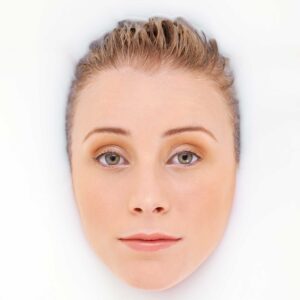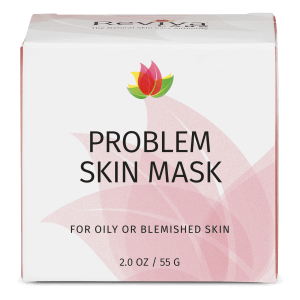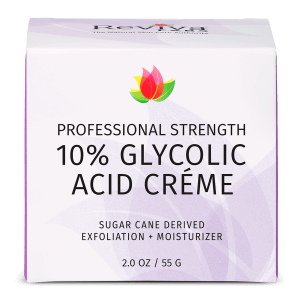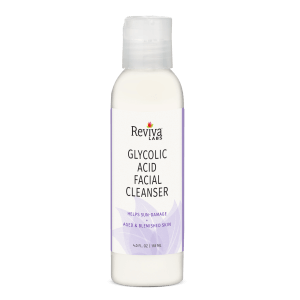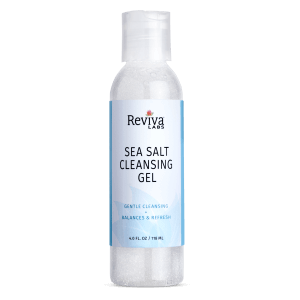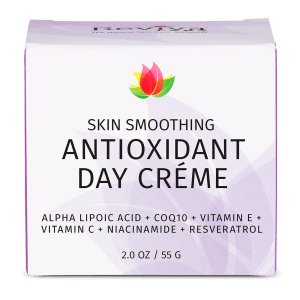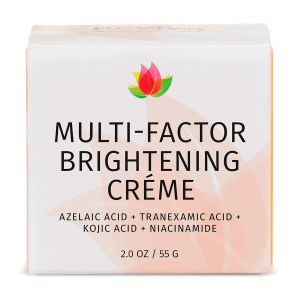Clean Beauty, Ingredients, Reviva Labs, Skin Care
How to Choose the Best Moisturizer for Acne-Prone Skin
Taking care of acne-prone skin can be a challenge, but one essential step that should never be overlooked is moisturization. Contrary to popular belief, acne-prone skin needs proper hydration to maintain a healthy balance and prevent breakouts. However, finding the right moisturizer for acne-prone skin can be tricky, as certain ingredients can exacerbate the condition. In this post, we’ll explore the key factors to consider when choosing a moisturizer for acne-prone skin and provide expert recommendations to help you achieve clear and nourished skin.
Understanding the Needs of Acne-Prone Skin
Before delving into the specifics of choosing a moisturizer, it is crucial to understand the unique needs of acne-prone skin. Acne-prone skin is characterized by excessive oil production, clogged pores, and inflammation. It is often sensitive and prone to breakouts, making it essential to choose products that won’t further irritate or exacerbate the condition.
The Importance of Non-Comedogenic and Oil-Free Formulations
When selecting a moisturizer for acne-prone skin, it is vital to choose products that are labeled as non-comedogenic and oil-free. Non-comedogenic moisturizers are specifically designed not to clog pores, minimizing the risk of blackheads and whiteheads. Oil-free formulations help regulate sebum production and prevent excessive oiliness, which can contribute to acne breakouts.
Key Ingredients to Look for in Moisturizers for Acne-Prone Skin
Several ingredients have been proven effective in moisturizers for acne-prone skin. These ingredients can help control oil production, reduce inflammation, and promote healthy, clear skin. Let’s explore some of them in detail:
Salicylic Acid
Salicylic acid is a powerhouse ingredient for acne-prone skin. It is a beta hydroxy acid that can exfoliate the surface of the skin and penetrate deep into the pores, effectively unclogging them. By removing dead skin cells and excess oil, salicylic acid helps prevent breakouts and keep the skin clear.
Niacinamide
Niacinamide, also known as vitamin B3, offers multiple benefits for acne-prone skin. It helps regulate sebum production, reducing excess oiliness and preventing clogged pores. Niacinamide also boasts anti-inflammatory properties, which can help calm redness and irritation associated with acne.
Hyaluronic Acid
Hyaluronic acid is a humectant that attracts and retains moisture in the skin. Despite its name, hyaluronic acid is not oily and is suitable even for oily and acne-prone skin. By providing hydration without clogging pores, hyaluronic acid helps maintain a healthy moisture balance in the skin.
Glycerin
Glycerin is a natural humectant that helps draw moisture into the skin. It is non-comedogenic and can help hydrate acne-prone skin without causing further breakouts. Glycerin also helps strengthen the skin barrier, promoting overall skin health.
Other Beneficial Ingredients
In addition to the key ingredients mentioned above, there are several other ingredients that can benefit acne-prone skin. These include alpha hydroxy acids (AHAs) like glycolic acid, which exfoliate the skin and promote cell turnover, and tea tree oil, which has antimicrobial properties that can help fight acne-causing bacteria.
Ingredients to Avoid in Moisturizers for Acne-Prone Skin
While there are ingredients that can benefit acne-prone skin, there are also certain ingredients that should be avoided. These ingredients can potentially irritate the skin and worsen acne symptoms. Here are some ingredients to steer clear of:
Fragrances
Fragrances, both synthetic and natural, can irritate sensitive and acne-prone skin. Opting for fragrance-free moisturizers can help minimize the risk of irritation and inflammation.
Isopropyl Myristate/Isopropyl Palmitate
Isopropyl myristate and isopropyl palmitate are commonly used in skincare products to enhance texture and aid in ingredient absorption. However, they can also clog pores and lead to breakouts, making them unsuitable for acne-prone skin.
Parabens
Parabens are preservatives used in many skincare products, but they can potentially disrupt hormone balance and contribute to acne breakouts. Choosing paraben-free moisturizers can be beneficial for those with acne-prone skin.
Tailoring Moisturizers to Different Skin Types
It’s important to note that acne-prone skin can vary in its characteristics, from oily to combination to dry. To find the best moisturizer for your specific skin type, consider the following guidelines:
Oily Acne-Prone Skin
For oily acne-prone skin, opt for lightweight, gel-based moisturizers. These formulations are easily absorbed into the skin and won’t feel heavy or greasy. Look for oil-controlling properties and ingredients like salicylic acid to help keep pores clear.
Combination Acne-Prone Skin
Combination skin is characterized by oily areas, typically in the T-zone, and drier areas on the cheeks and other parts of the face. Choose a moisturizer that is lightweight and non-greasy, focusing on balancing hydration for both oily and dry areas. Look for ingredients like niacinamide and hyaluronic acid to address the specific needs of combination skin.
Dry Acne-Prone Skin
Dry acne-prone skin requires more intensive hydration. Opt for richer, cream-based moisturizers that can nourish and deeply hydrate the skin. Ingredients like ceramides and hyaluronic acid can help repair the skin barrier and lock in moisture.
Adapting Moisturizers to Changing Seasons
Just as your wardrobe changes with the seasons, so should your skincare routine. Different weather conditions can affect the needs of your skin, including its hydration levels. Here are some tips for adapting your moisturizer to the changing seasons:
Summer and Hot Weather
During hot and humid weather, you may find that your skin requires a lighter moisturizer or even no moisturizer at all. Look for oil-free or gel-based formulations that won’t feel heavy on the skin. Don’t forget to apply sunscreen with zinc oxide, which is better tolerated by acne-prone skin.
Winter and Cold Weather
In colder months, the skin tends to be drier and requires more intensive hydration. Opt for richer, cream-based moisturizers that can provide a protective barrier against harsh weather conditions. Look for ingredients like ceramides and hyaluronic acid to keep your skin nourished and moisturized.
Applying Moisturizer: The Right Techniques
Applying moisturizer correctly can maximize its benefits and ensure optimal absorption. Here are some tips for applying moisturizer to acne-prone skin:
- Cleanse your face thoroughly before applying moisturizer to remove any dirt, oil, or impurities.
- Pat your skin dry gently with a clean towel, leaving it slightly damp. Moisturizers tend to absorb better on damp skin.
- Take a small amount of moisturizer and warm it between your fingertips.
- Apply the moisturizer using gentle, upward motions, focusing on areas that tend to be drier or more prone to acne.
- Allow the moisturizer to fully absorb into the skin before applying any makeup or other skincare products.
Even Acne-prone Skin Needs Moisture
Choosing the right moisturizer for acne-prone skin is essential for maintaining a healthy complexion and preventing breakouts. By considering ingredients like salicylic acid, niacinamide, and hyaluronic acid, and avoiding irritants like fragrances and certain oils, you can find a moisturizer that suits your skin’s specific needs. Remember to adapt your moisturizer to changing seasons and apply it correctly for optimal results. With the right moisturizer, you can nourish and hydrate your skin while keeping acne at bay.




